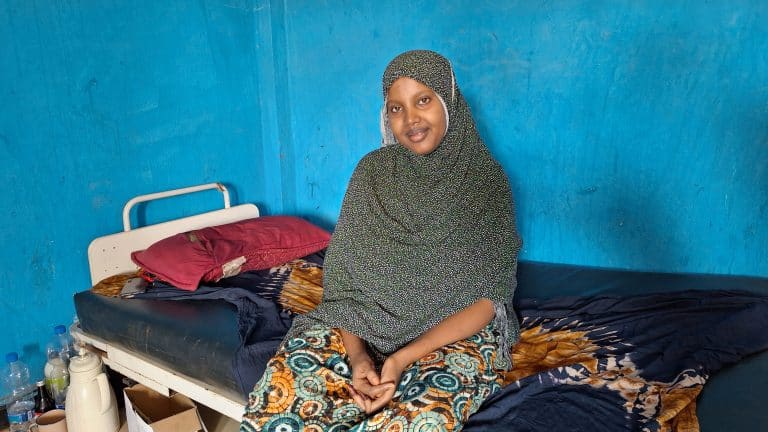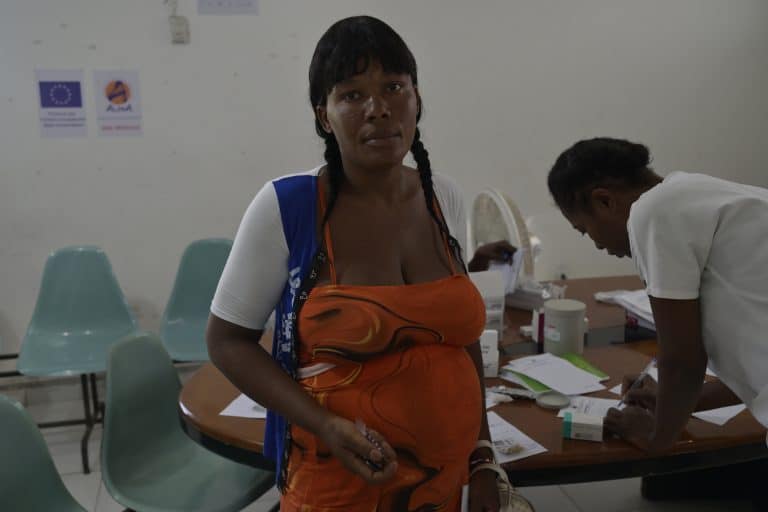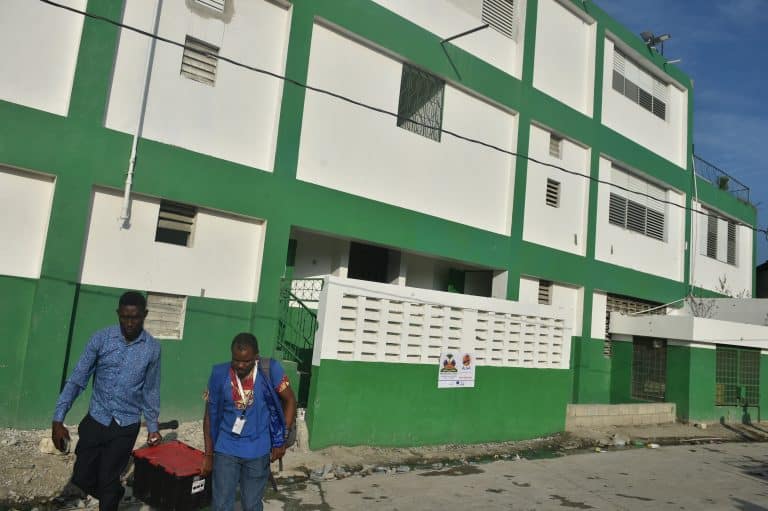Each year, between July and November, the number of cases spike as heavy rains fall throughout the region. The situation is exacerbated by the December 2013 conflict that has led to more than 3.5 million people fleeing their homes, as well as widespread food shortages. Additionally, the health system has been fractured in many areas and security concerns make access to remaining functional health centers difficult. Many pharmacies no longer stock medications and families struggle to afford them in the few places that do.
“The idea is to get closer to communities with the mobile clinics, because, during rainy season, there are floods; the roads are poor and access to health care is a big challenge,” said Mathieu Kinde, ALIMA’s project coordinator in Aweil. “At the same time, malaria is really making people suffer. This is why it is important to go to them, to reach them, so that we can test and treat them.”
The World Health Organisation (WHO) says malaria is the “number one killer” in South Sudan, with more than 1.3 million people infected throughout the country since January. Some 220 people are dying each week from the life-threatening, but curable, disease that is spread by the bite of infected mosquitos.
Since ALIMA began its mobile clinic response in South Sudan’s northwestern state of Aweil in August, more than 46,000 patients from villages in the Panthou, Maper and Guengkou areas have been tested for malaria using a rapid diagnostic test. Approximately 85% of them tested positive, and ALIMA has so far treated some 39,000 people free of charge as outpatients. Teams have also hospitalised nearly 600 patients suffering from severe malaria at ALIMA’s 15-bed inpatient treatment center in Panthou.
“In addition to humanitarian needs, the population has to deal with shortages of mosquito nets and medicines in primary health care centers,” explains Mathieu Kinde.
Patients who test positive for simple malaria, will receive a 3-day course of treatment that they can administer at home. They are advised to return to the clinic after 3 days if their health doesn’t improve, or at any moment if needed. Severe cases with complications are referred to the Aweil Civil Hospital or hospitalized at Panthou primary healthcare center.
At each mobile clinic destination, ALIMA health promoters remind people about malaria signs and symptoms, as well as prevention measures, which include draining away stagnant water, sleeping under mosquito nets and wearing long-sleeved clothing at dusk and dawn, when mosquitoes are most active, to avoid bites.
In addition to malaria, mobile clinic teams treat patients for other ailments, such as diarrhea, skin lesions, respiratory infections and worms.
ALIMA (The Alliance for International Medical Action) is a medical humanitarian organization that works hand-in-hand with a network of local health organizations to provide quality medical care to the most vulnerable people during emergency situations and recurrent crises. ALIMA and its partners are also conducting cutting-edge research to improve humanitarian medicine.
Based in Dakar, Senegal, ALIMA has treated over 2 million patients in 12 countries since its creation in 2009 and launched 10 research projects focused on malnutrition, malaria and Ebola.
In South Sudan, ALIMA and its local NGO partner, AFOD (Action for Development), began operations at the Raja Hospital in May 2017. Since then, medical teams have provided free care for more than 11,000 patients in Raja. Mobile clinics began reaching local populations outside of Raja city in July.
ALIMA also began providing health care services in Aweil in August, and have treated more than 39,000 patients for malaria.
This project is made possible thanks to a generous donation by USAID, from the American people.





